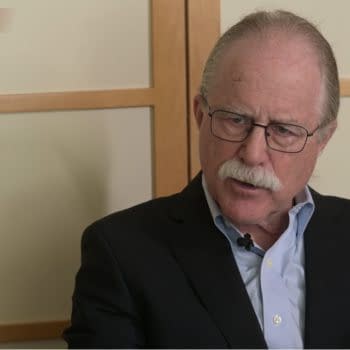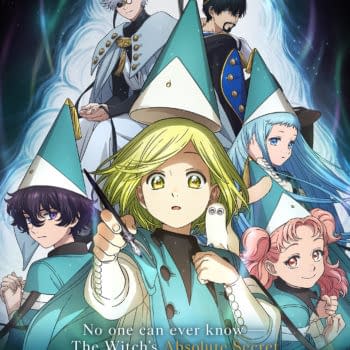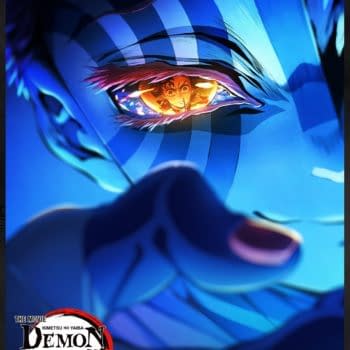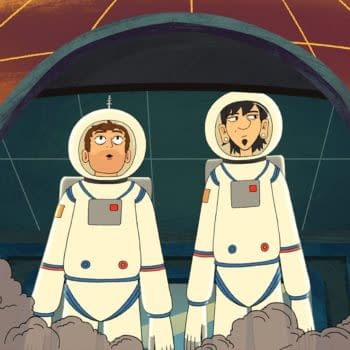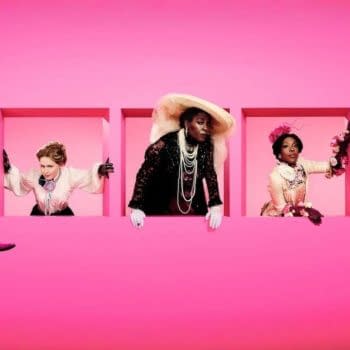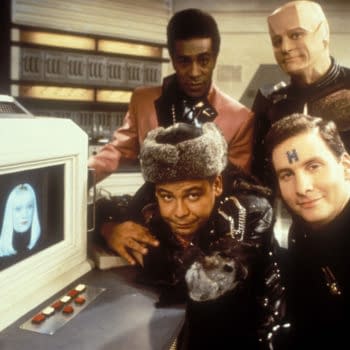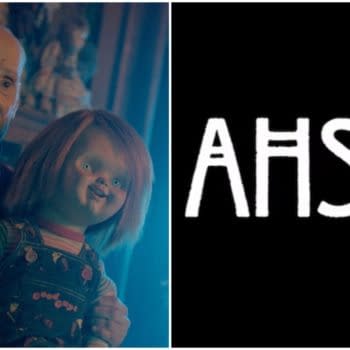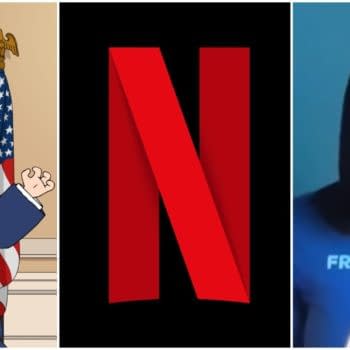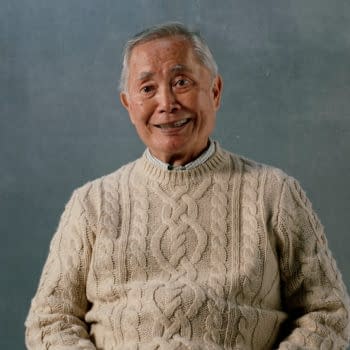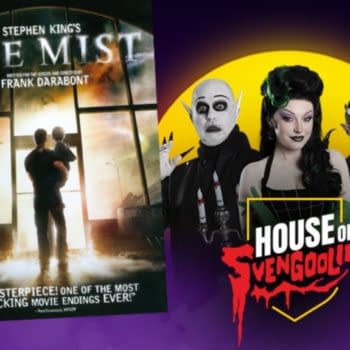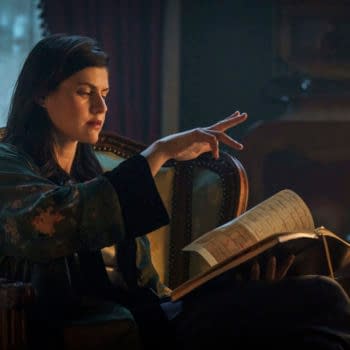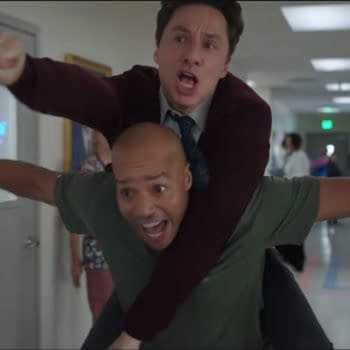Posted in: BBC, Doctor Who, HBO, Review, streaming, TV, YouTube | Tagged: 9th doctor, bbc, billie piper, bleeding cool, cable, christopher eccleston, doctor who, Gallifrey, rose tyler, science fiction tv, streaming, tardis, television, Time Lord, tv
Doctor Who "Rose": The Ninth Doctor's Quintessential Story
This is a new series where we pick a Doctor Who story that sums up the personality and era of one particular Doctor. The story is not necessarily the best or the worst of that Doctor's era, just the one that we feel is the perfect introduction and summation of that Doctor. Today, we pick "Rose" as the quintessential 9th Doctor story.
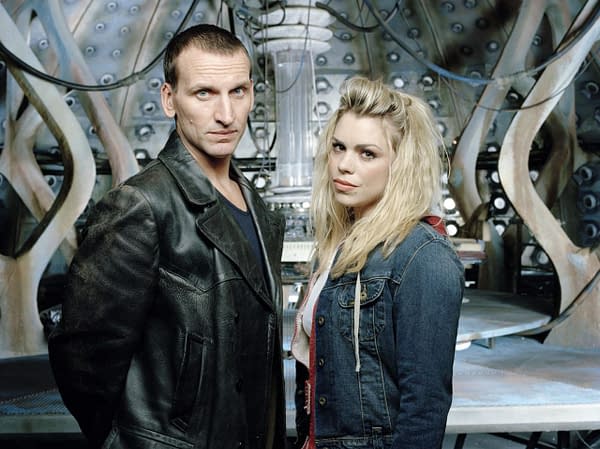
Rose Tyler (Billie Piper), a shop girl at a Central London shopping center, discovers the world is a lot bigger than she thought when she meets an alien named The Doctor (Christopher Eccleston), who enlists her in his bid to stop an alien invasion.
The First Northern Working-Class Doctor
A Doctor's first story is rarely the best or the one that defines the character, but "Rose" is the rare exception. Christopher Eccleston shows up fully formed as the 9th Doctor, for many viewers their first. He's also the first working-class Doctor with his Salford accent and no-nonsense look. He doesn't need to have a weird costume or an eccentric personality beyond an odd sense of humour and alien way of looking at things – because he's really an alien! He looks like any bloke you might see on the street. He's the Doctor brought down to Degree Zero.
With his black leather jacket and black pants, he looks like your no-nonsense social worker who's going to kick the crap out of you and drag you to rehab for your own good. The 9th Doctor's character was complete the moment Eccleston showed up and doesn't really change throughout his one season. Of all the Doctors, the 9th is the most recognizably adult. He does have an arc, which is to open up emotionally again, but that was already starting to happen when he meets Rose. For her part, Billie Piper also defined the 21st Century version of the Doctor's companion for the show that's been the same ever since: a down-to-earth young woman with unrealized potential and is waiting for discover a bigger universe out there.
Even their first scene together sets the tone for the whole show that's been the same ever since.
A New Show Made from the Old Show: "Rose" introduced the world to The Doctor again after 16 years. It had to establish the entire premise of the show in less than an hour. It's effectively a pilot episode for a new show. It was a statement of intent: that the mundanity of 2005 Britain might be visited by the fantastical that takes it beyond the kitchen sink realism of council estates and Oxford Street department stores. "Time Lord" isn't even mentioned in this pilot episode.
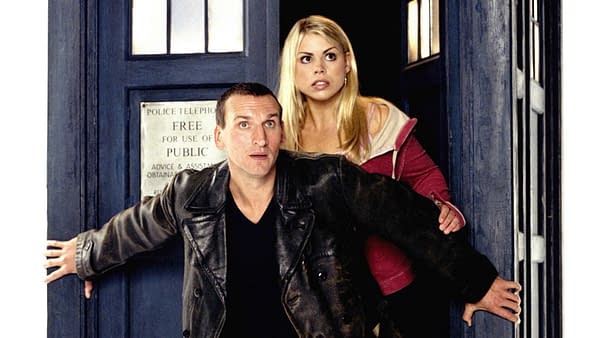
Russell T. Davies knew a lot was riding on his revival of the show. He became the hottest showrunner in Britain for creating the original British version of Queer As Folk, which began the trend of normalizing gay characters on TV in the UK before the Showtime remake did the same in the US. He could write his own ticket and decided to use his newfound clout to bring back Doctor Who. The show was canceled in 1989, which means an entire generation of kids in the UK did not have Doctor Who as part of their cultural life. During the 90s, British TV drama went through a horrendous period in the 1990s where it was dominated by cop shows obsessed with serial killers and the lack of good Fantasy and Science Fiction. Reality TV like Big Brother took off and began to dominate the TV landscape. The few Science Fiction shows were terrible take-offs of X-Files while Buffy the Vampire Slayer took the crown for most popular genre show amongst kids. Davies knew he had to drag the show to the modern era. It had to attract new fans, not hardcore, aging fans like him. He knew the show would need a female viewership on top of kids to succeed, and he used conventions established by Buffy to maximise the type of emotional investment that creates hardcore fanbases for a show. It's an approach the show has been taking ever since. If "Rose" hadn't been a success, the show would not be around today.



